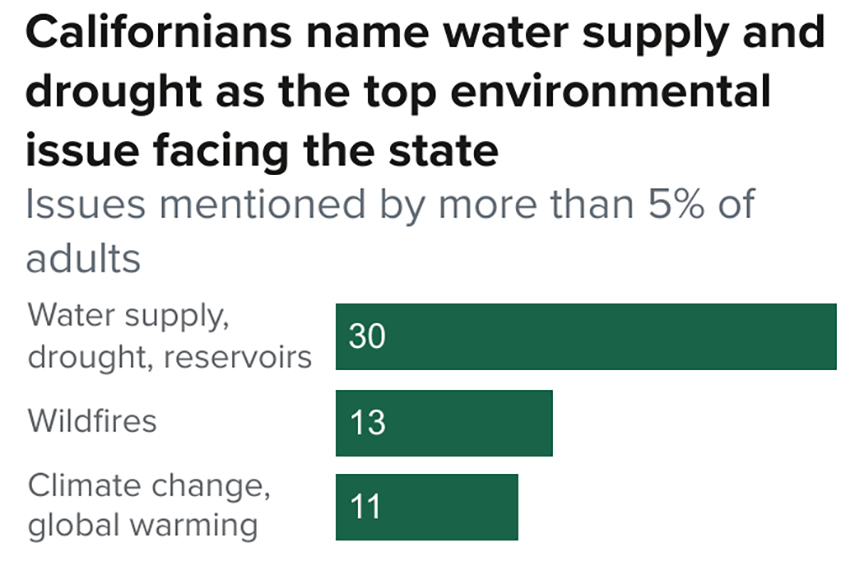California—known for its breathtaking landscapes and natural beauty—is facing some of the most significant environmental challenges in the nation. From devastating wildfires to chronic water shortages and the strain of ambitious renewable energy goals, these issues have become emblematic of a broader crisis in leadership. Decades of mismanagement and unrealistic policies under Democratic governance have left the state vulnerable, but there is hope. Republican principles of proactive management, innovation, and practical policymaking offer a clear path to addressing these challenges and securing California’s environmental and economic future.
Wildfire Management: Tackling the Root Causes
California’s wildfire crisis is a testament to the dangers of neglecting forest management. Overgrown forests, dead trees, and excessive underbrush have created ideal conditions for catastrophic fires. While climate change is often cited as a contributing factor, the reality is that poor forest management policies have significantly amplified the problem.
- The Democratic Approach: For decades, California’s leaders have emphasized preservation over active management, restricting logging and controlled burns in the name of environmental protection. This hands-off approach has allowed hazardous conditions to fester, leading to devastating wildfires that destroy communities and ecosystems alike.
- The Republican Solution: Republicans advocate for proactive forest management practices, including strategic logging, controlled burns, and the removal of dead vegetation. Under the Trump administration, federal initiatives prioritized these measures, emphasizing collaboration between state and federal agencies to reduce fire risk. By reinstating these policies, California can protect its communities and minimize the devastating impacts of wildfires.
Drought and Water Scarcity: Building a Sustainable Future
California’s water crisis is another pressing issue that has been exacerbated by outdated policies and a lack of investment in infrastructure. Prolonged droughts have strained the state’s water resources, impacting agriculture, industry, and everyday Californians.
- Outdated Water Rights: California’s antiquated water rights system allocates resources inefficiently, leaving some regions parched while others waste precious water.
- The Democratic Approach: Despite these challenges, Democratic leaders have been slow to modernize water infrastructure. Resistance to projects like reservoirs and desalination plants has left the state ill-prepared to cope with water shortages.
- The Republican Solution: Republicans advocate for modernizing water infrastructure to ensure reliable access for all Californians. Key measures include:
- Expanding reservoirs to store more water during wet years.
- Investing in desalination technology to create new freshwater sources.
- Modernizing irrigation systems to improve efficiency in agriculture.
- Revising water rights to reflect current needs and promote conservation.
Renewable Energy Goals: Balancing Ambition with Practicality
California’s push for 100% renewable energy by 2045 is one of the most ambitious in the nation. While the goal is admirable, the state’s rushed implementation has led to significant challenges, including rolling blackouts, skyrocketing energy costs, and increased reliance on foreign-made technology.
- The Democratic Approach: California’s leaders have prioritized symbolic gestures over practical solutions, imposing strict deadlines without addressing the infrastructure and economic realities of the transition to renewable energy.
- The Republican Solution: Republicans advocate for a balanced energy policy that prioritizes reliability and affordability while transitioning to cleaner energy sources. This includes:
- Investing in nuclear power as a zero-emission, reliable energy source.
- Supporting clean natural gas to bridge the gap between fossil fuels and renewables.
- Encouraging innovation in renewable technologies, such as advanced battery storage and carbon capture systems.
- Diversifying energy sources to avoid overreliance on intermittent renewables like solar and wind.

The Path Forward: Republican Leadership for California’s Environment
California’s environmental challenges demand pragmatic solutions rooted in accountability and innovation. Here’s how Republican principles can help:
- Collaborative Forest Management: Partnering with federal agencies to implement active forest management practices that reduce wildfire risk.
- Investment in Water Infrastructure: Expanding reservoirs, adopting desalination technology, and modernizing irrigation systems to secure the state’s water future.
- Practical Energy Policies: Balancing ambitious climate goals with reliable and affordable energy solutions, including nuclear power and clean natural gas.
- Accountability in Leadership: Electing leaders who prioritize results over rhetoric and focus on policies that benefit all Californians.
California’s environmental challenges are not insurmountable, but they require a shift in priorities and leadership. By embracing Republican principles of proactive management, infrastructure investment, and balanced energy strategies, the state can protect its natural resources while fostering economic growth. It’s time for Californians to move beyond symbolic gestures and demand real solutions that secure a sustainable future for generations to come.






